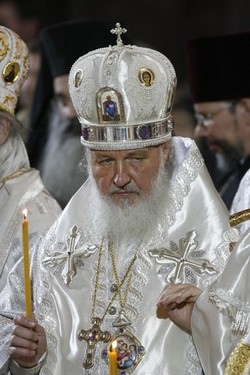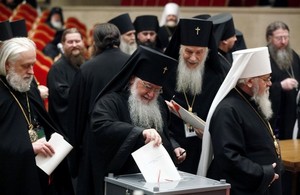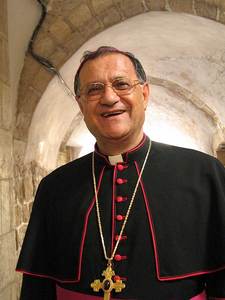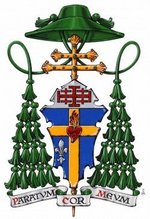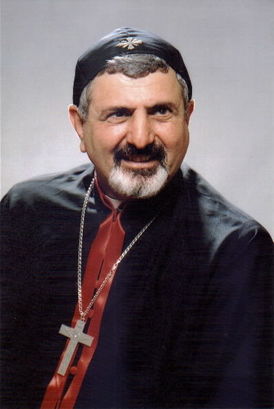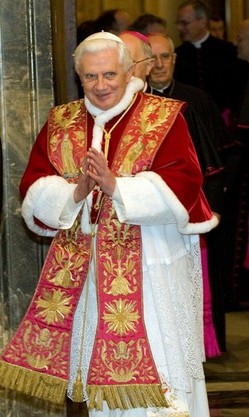 Here is an address of Benedict XVI to the Joint International Commission which deals with theological dialogue between the Catholic Church and the Oriental Orthodox Churches, given today 30 January 2009. The theme of the address ought to be a recognizable one for us this week. The Pope, the brilliant theologian and gentle churchman that he is, is working overtime to bring the various churches together. May his work bear fruit!
Here is an address of Benedict XVI to the Joint International Commission which deals with theological dialogue between the Catholic Church and the Oriental Orthodox Churches, given today 30 January 2009. The theme of the address ought to be a recognizable one for us this week. The Pope, the brilliant theologian and gentle churchman that he is, is working overtime to bring the various churches together. May his work bear fruit!
I extend a warm welcome to you, the members of the Joint International Commission for Theological Dialogue between the Catholic Church and the Oriental Orthodox Churches. At the end of this week of dedicated work we can give thanks together to the Lord for your steadfast commitment to the search for reconciliation and communion in the Body of Christ which is the Church.
Indeed, each of you brings to this task not only the richness of your own tradition, but also the commitment of the Churches involved in this dialogue to overcome the divisions of the past and to strengthen the united witness of Christians in the face of the enormous challenges facing believers today.
The world needs a visible sign of the mystery of unity that binds the three divine Persons and, that two thousand years ago, with the Incarnation of the Son of God, was revealed to us. The tangibility of the Gospel message is conveyed perfectly by John, when he declares his intention to express what he has heard and his eyes have seen and his hands have touched, so that all may have fellowship with the Father and with his Son Jesus Christ (cf. 1 Jn 1:1-4). Our communion through the grace of the Holy Spirit in the life that unites the Father and the Son has a perceptible dimension within the Church, the Body of Christ, "the fullness of him who fills all in all" (Eph 1:23), and we all have a duty to work for the manifestation of that essential dimension of the Church to the world.
Your sixth meeting has taken important steps precisely in the study of the Church as communion. The very fact that the dialogue has continued over time and is hosted each year by one of the several Churches you represent is itself a sign of hope and encouragement. We need only cast our minds to the Middle East - from where many of you come - to see that true seeds of hope are urgently needed in a world wounded by the tragedy of division, conflict and immense human suffering.
The Week of Prayer for Christian Unity has just concluded with the ceremony in the Basilica dedicated to the great apostle Paul, at which many of you were present. Paul was the first great champion and theologian of the Church's unity. His efforts and struggles were inspired by the enduring aspiration to maintain a visible, not merely external, but real and full communion among the Lord's disciples. Therefore, through Paul's intercession, I ask for God's blessings on you all, and on the Churches and the peoples you represent.
